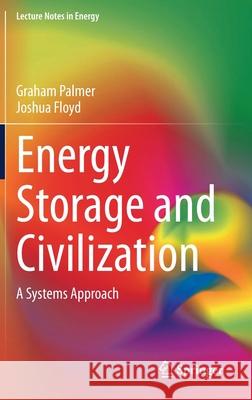Energy Storage and Civilization: A Systems Approach » książka
topmenu
Energy Storage and Civilization: A Systems Approach
ISBN-13: 9783030330927 / Angielski / Twarda / 2020 / 173 str.
Kategorie:
Kategorie BISAC:
Wydawca:
Springer
Język:
Angielski
ISBN-13:
9783030330927
Rok wydania:
2020
Wydanie:
2020
Numer serii:
000444183
Ilość stron:
173
Waga:
0.44 kg
Wymiary:
23.39 x 15.6 x 1.27
Oprawa:
Twarda
Wolumenów:
01
Dodatkowe informacje:
Wydanie ilustrowane











